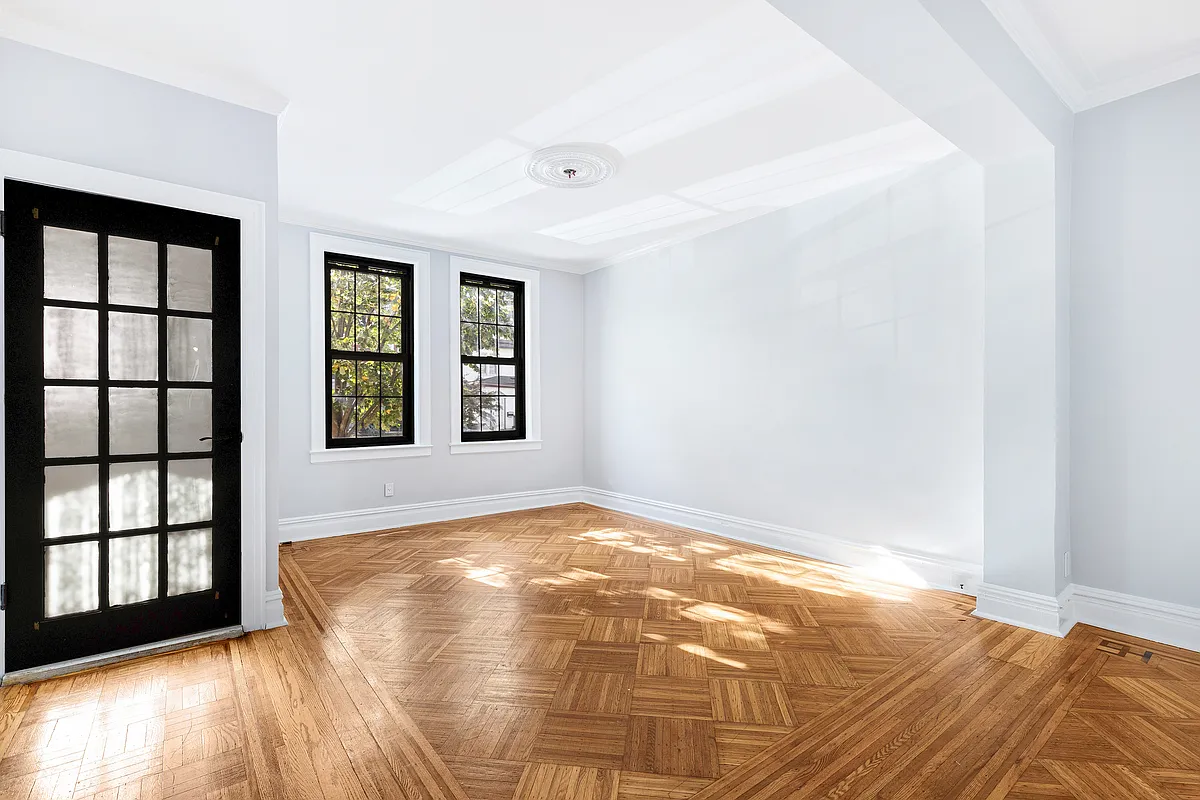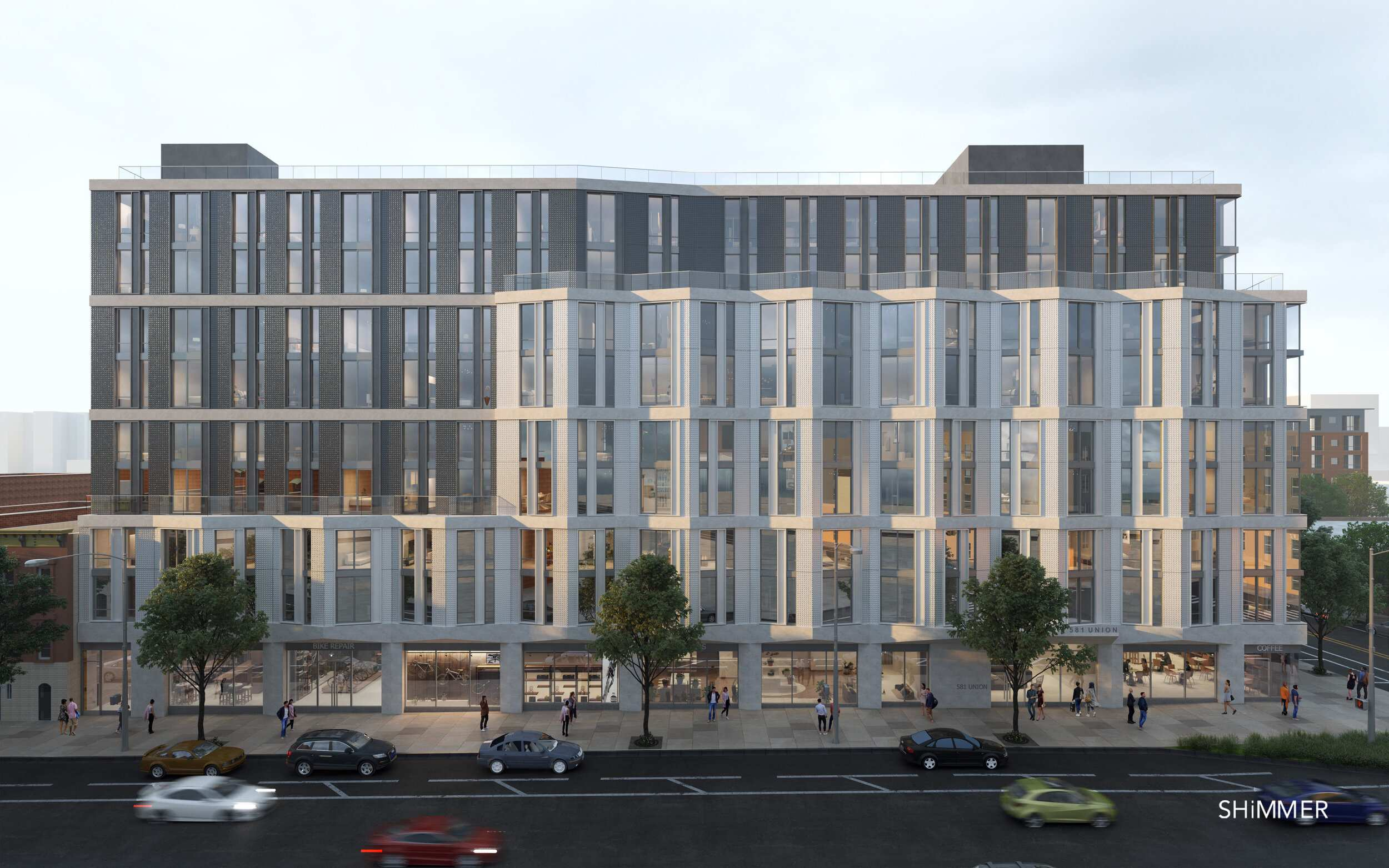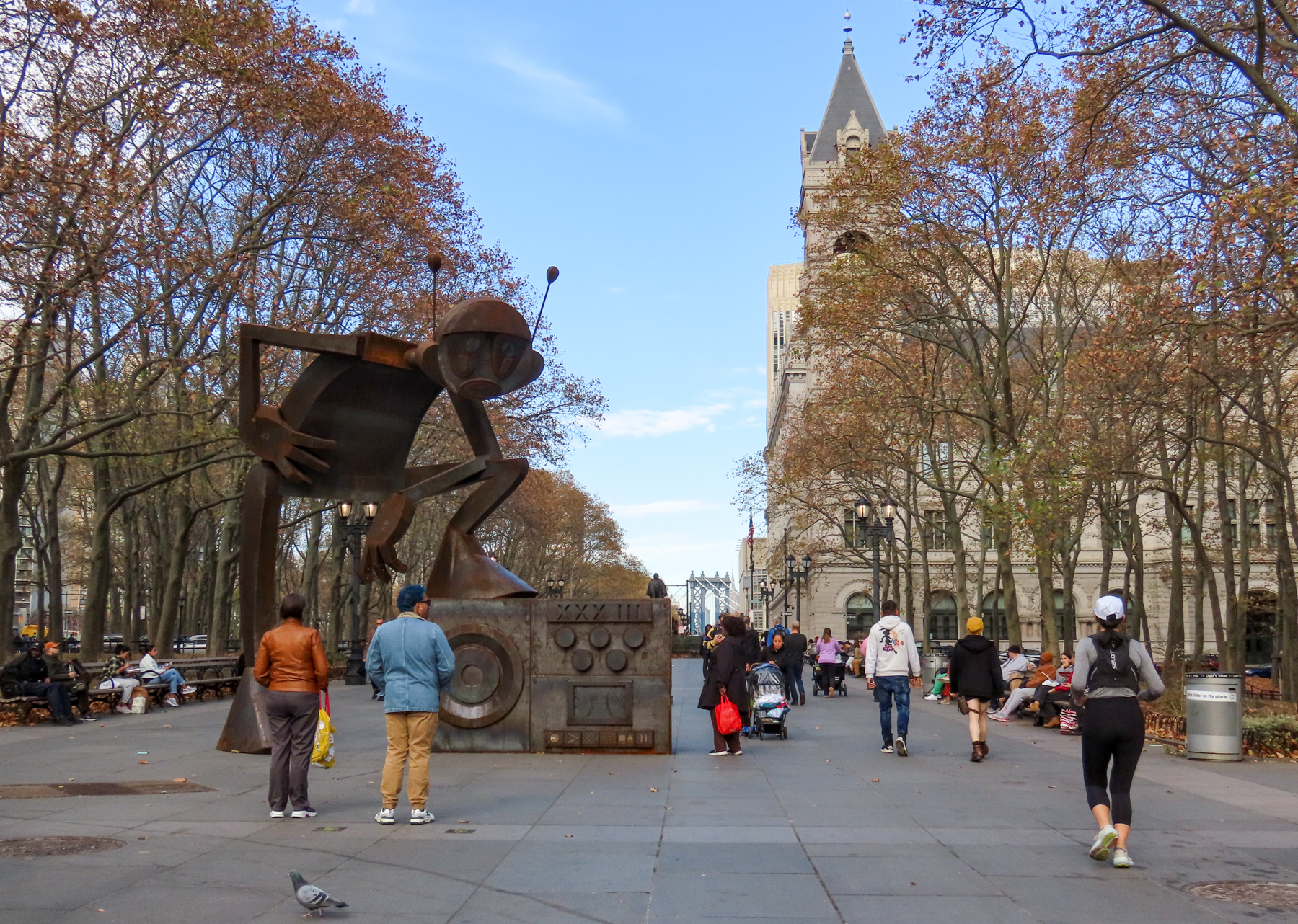Rental Broker Fee Bill Nears Veto-Proof Support as Council Hears Raucous Public Reactions
The FARE Act has 33 supporters in the City Council so far, but Speaker Adrienne Adams has yet to say if she’ll call a vote on the controversial measure to ban forced fees for apartment hunters.

Brokers and landlords attend a City Council hearing on a bill that would requite whomever hires a broker to pay their fee, June 12, 2024. Credit: Alex Krales/THE CITY
This article was originally published on Jun 12 at 3:56 p.m. EDT by THE CITY
At a raucous City Council hearing Wednesday, renters, their supporters, and the real estate industry went head to head over a new bill that would ban forced broker fees for New York City apartment hunters.
Hundreds of people descended on City Hall to testify about the FARE Act, a bill that would make whomever hires a broker — be it tenant or landlord — pay their fee. Currently, prospective tenants commonly pay broker fees, even when they may have found an apartment on their own.
The bill, spearheaded by City Council Member Chi Ossé, has garnered close to a veto-proof majority of 33 in the 51-member Council.
More than 400 people signed up to testify, in panels that alternated between supporters and opponents, with some waiting as long as two hours to enter the hearing room. Hundreds more watched via a livestream of the hearing, held by the Council’s Committee on Consumer and Worker Protection.
The fervor over the bill speaks to the stress felt by New Yorkers in a super-heated housing market where the rental apartment vacancy rate, measured last year at 1.4 percent, is the lowest it’s been in more than 50 years.

The Real Estate Board of New York, the bill’s most vocal opponent, organized hundreds of real estate agents to come to the hearing, many donning matching T-shirts that read “Say NO to Intro 360.”
“The FARE Act, while well-intentioned, could lead to higher rents and reduced listing visibility, ultimately harming tenants,” testified Brian Phillips, an associate broker at Douglas Elliman and the chair of the New York City working group for the New York State Association for Realtors.
New York City is one of only two U.S. cities where tenants are expected to pay a broker fee, even if they did not hire a broker, according to an analysis by the industry trade publication The Real Deal. Bill supporters said it’s past time to do away with that norm.
Annie Abreu, a recent law school graduate who lives with her mother in Sunset Park, testified that being low income for most of her life has been a barrier to finding secure and affordable housing.
“Even now as I’m about to enter a new income bracket, I’m faced with a new obstacle: the broker’s fee,” said Abreu. “I do not think there is any reason for me to pay one month’s rent or more to a person a landlord hired to post something on StreetEasy or Zillow or God knows where, riddled with typos and lies, only for me to get the apartment on my own and not get responses to my basic questions.”
Tenants and their advocates aren’t the only ones behind the bill. One of its most vocal recent supporters is venture capitalist and political consultant Bradley Tusk, who testified via Zoom, saying that the bill will help the New York economy at large by making it easier for new people to move to the city.
“One of the things that makes New York New York is that the best and the brightest from all over the world want to come here,” says Tusk. “But we are preventing their ability to do that and to move here by charging that artificial barrier and this totally unnecessary fee.”
Throughout the hours-long hearing, the crowd filled the Council chamber with clapping, cheering, and booing from bill opponents repeatedly interrupting the proceedings.
Tensions arose early in the hearing as it became clear that the administration of Mayor Eric Adams had not sent a representative from the Department of Consumer and Worker Protection (DCWP), the agency that would be in charge of enforcement.
Instead, Ahmed Tigani, first deputy commissioner of the city’s Department of Housing Preservation and Development, testified on the administration’s behalf.
Several Council members asked Tigani why he was there, with Council Member Sandy Nurse declaring that DCWP’s absence “hinders our ability as Council members to ask the most appropriate questions and to get those answers.”
DCWP has not responded to THE CITY for comment.
It’s now up to committee chair Julia Menin to decide whether to bring the bill to a vote. If the bill passes in committee, Council Speaker Adrienne Adams can move the bill to a vote for the entire Council. Neither lawmaker has said where they stand on the bill. Menin’s office did not reply to a request for comment from THE CITY and Adams’ office declined to comment.
Past efforts to ban forced broker fees have been unsuccessful.
In 2020, interpreting a tenant protection law passed by the legislature, the New York Department of State issued guidance that prohibited brokers hired by landlords from charging tenants. But REBNY challenged the restriction in a lawsuit, resulting in a state court overturning the ban in 2021.
In 2019, Council Member Keith Powers of Manhattan proposed to cap broker fees to no more than one month of rent, but that measure never made it out of committee.
Ossé first proposed the FARE Act in 2023. The bill did not make it to a hearing and therefore never had a chance to come to a vote in the Council last year. Ossé reintroduced his bill in February.

The FARE Act, originally co-sponsored by Council
members Shaun Abreu of Manhattan and Oswaldo Feliz of the Bronx, now has 33 supporters in the Council, only one away from a veto-proof majority.
More than 30 advocacy groups have declared their support for the bill, including Make the Road New York, the Legal Aid Society, and the New York Working Families Party.
Mayor Adams has yet to weigh in for or against the bill, citing his past as a real estate broker for his ambivalence.
“We are reviewing the legislation and taking time to understand potential impacts,” said Adams in a press conference Tuesday.
THE CITY is a nonprofit newsroom that serves the people of New York. Sign up for our SCOOP newsletter and get exclusive stories, helpful tips, a guide to low-cost events, and everything you need to know to be a well-informed New Yorker. DONATE to THE CITY
Related Stories
- In Brooklyn’s Heated Rental Market, Broker Fees Return With a Vengeance
- What Is Affordable Housing?
- Brooklyn Real Estate Prices Hold Steady in First Quarter
Email tips@brownstoner.com with further comments, questions or tips. Follow Brownstoner on X and Instagram, and like us on Facebook.









What's Your Take? Leave a Comment